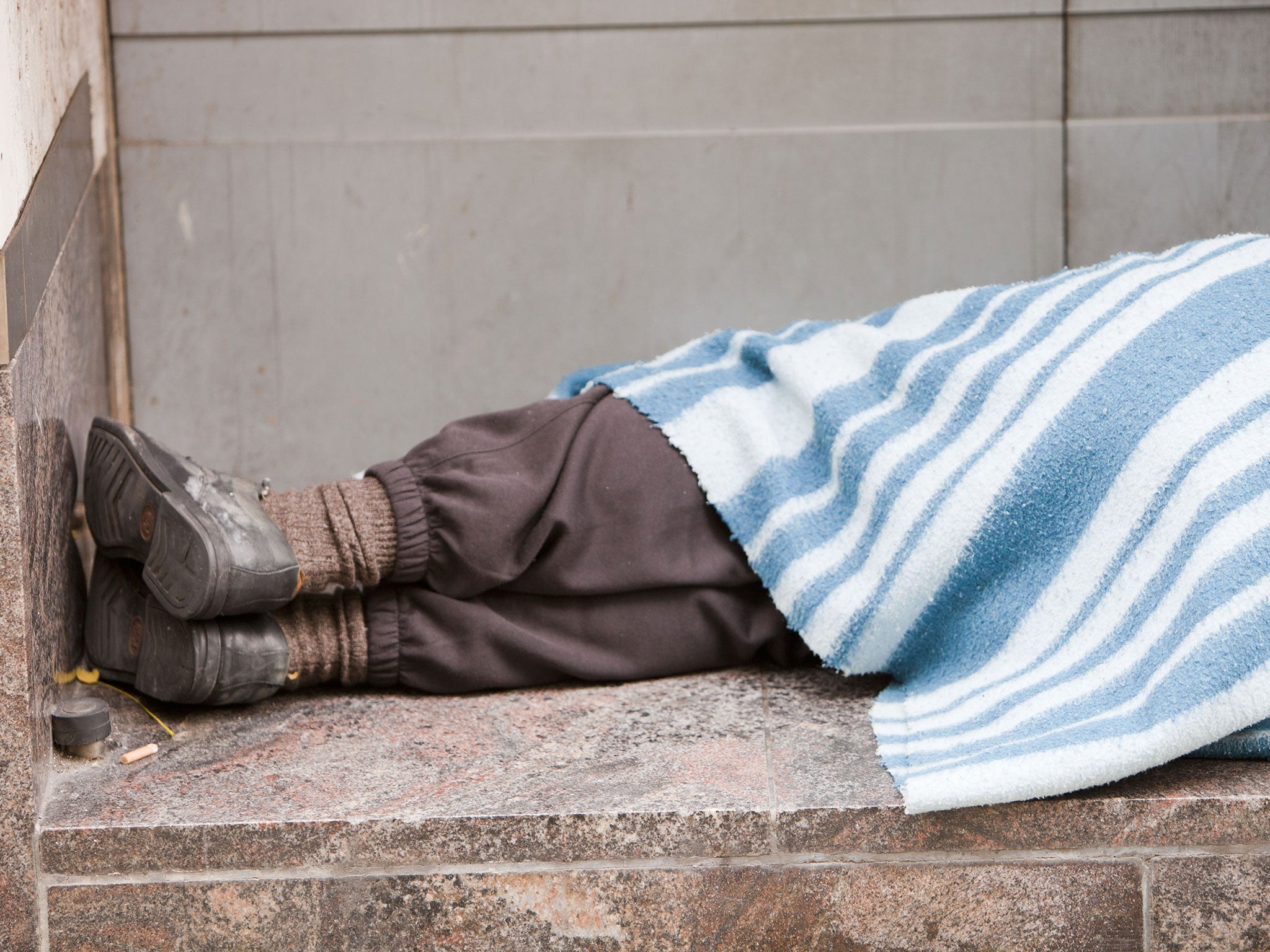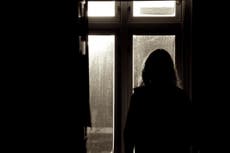‘My husband threatened to kill me’: Migrant domestic abuse survivors on horror of being made destitute and let down by public agencies
London’s Independent Victims Commissioner and the Domestic Abuse Commissioner urge government to stop failing migrant women fleeing abusive partners

Your support helps us to tell the story
From reproductive rights to climate change to Big Tech, The Independent is on the ground when the story is developing. Whether it's investigating the financials of Elon Musk's pro-Trump PAC or producing our latest documentary, 'The A Word', which shines a light on the American women fighting for reproductive rights, we know how important it is to parse out the facts from the messaging.
At such a critical moment in US history, we need reporters on the ground. Your donation allows us to keep sending journalists to speak to both sides of the story.
The Independent is trusted by Americans across the entire political spectrum. And unlike many other quality news outlets, we choose not to lock Americans out of our reporting and analysis with paywalls. We believe quality journalism should be available to everyone, paid for by those who can afford it.
Your support makes all the difference.“I experienced multiple forms of abuse including economic and psychological violence,” Gill* says. “One day during an argument he exerted physical violence towards me. I was very scared and decided to go to the police. The response from the police was that due to my insecure immigration status, they could not help me. They did not offer an interpreter nor took me to the hospital despite the bruises I had on my body.”
Gill, who came to the UK from Brazil in 2016, long suffered in silence as her partner subjected her to a campaign of domestic abuse, due to fears she would be deported if she came forward to report the violence.
After the domestic abuse survivor, who gave evidence to the House of Lords on Tuesday, finally plucked up the courage to report her abuse, she was repeatedly let down by public services.
London’s Independent Victims Commissioner, Claire Waxman, and the Domestic Abuse Commissioner, Nicole Jacobs, warn she is not alone — telling The Independent the most “most marginalised and isolated” domestic abuse victims are routinely failed due to their immigration status.
The pair are calling for the domestic abuse bill to be urgently amended to make sure migrant women can safely report abuse and access support.
Gill says the police did not treat her as a “victim first and foremost” as they claim to do and her immigration status was prioritised over her safety — adding they instead persuaded her to go back to Brazil and referred her to the Home Office. She was then pushed on to the streets in the bitter January cold rather than being given a bed in a refuge for women fleeing domestic abusers.
“Once in the Home Office, officials told me voluntary return would take some days and that I had to wait,” she says. “However, they did not provide me with any accommodation, support or advice. As I did not have any access to public funds, I was not entitled to access any refuge. I was at serious risk of becoming destitute, worse I was there with my eldest child, an eight-year-old. For many days, we had to move between temporary shelters until the point of having to sleep rough for some days in the middle of a very cold January.”
Gill, who received help from the Latin American Women's Rights Service, said her abusive ex-partner had convinced her she could come to the UK with a tourist visa — claiming he would renew his British passport so their family could settle, but in the end, he refused to do so.
Her experience demonstrates perpetrators are using a “flawed system” to carry on exerting abuse with impunity, she said.
“After almost four years since I fled the abuse, I am still struggling to settle and to be safe,” Gill adds. “The domestic abuse bill is a great opportunity to ensure all women and children can access safety, support and justice, because my story is not an exception. I have heard similar stories to mine, some of them just now during the lockdown.”
Campaigners have long warned the landmark domestic abuse bill, which is due to return to the House of Commons for its second reading in Autumn, profoundly lets down migrant women, whose immigration status is routinely wielded as a “weapon to abuse” them.
Anushka*, who grew up outside of Britain in a Hindu family, was also let down by public agencies when she reported domestic abuse here.
The survivor, who also gave evidence to the House of Lords on Tuesday, was forced into an arranged marriage at the age 24 with a man who had been living in the UK for two years.
“He would hurt me at least once a week: he often pulled my hair, pressed down on my neck nearly choking me, and slammed my head against a wall,” Anushka* says. “He was rude and aggressive towards me every day. Sometimes he was sexually violent towards me. He was never happy with anything I did.”
She said she told her husband she would call the police to report his abuse but he would respond by threatening to cancel her visa — telling her she would subsequently be deported.
Anushka, who says her ex was violent towards her many times, stopped threatening to call the police due to fears of being discovered by the Home Office, and made efforts to hide the abuse she was suffering from her work colleagues in case they informed the police.
She then became suspicious her husband was having an affair and her friend’s wife later told her that he was.
“When I asked him about it, he was furious,” Anushka adds. “He assaulted me and told me to leave the house. He threatened to kill me, before he left for work. I had nowhere to go. When he returned home, he asked me why I was still there. I was crying and scared and told him I did not know where to go. He pushed me down and forced me to have sex with him and then told me again to get out, and that he did not want to see my face again. He then threw me out of the house.”
Her husband then called the Home Office to say they had separated and she later received a letter from them saying they would cancel her visa so she no longer had a right to stay in the UK.
“Because of this, I lost my job,” she adds. “I no longer have the right to work and I have No Recourse to Public Funds. I soon ran out of any savings, my husband took all the money out of our joint account, and I had no money to buy food or anywhere to live. I cannot return to my home country as it will be too shameful for me. The shame and stigma of the divorce would be on me, despite how my husband has behaved.”
Anuskha said her parents no longer speak to her and she fears being isolated and destitute if she returns to her home country. She is currently living with someone her local temple referred her to — adding that Southall Black Sisters, which supports black and minority ethnic women, provides her with financial help to cover her food and personal needs.
“I am also afraid of being found by my husband who has been trying to find me for a few years now, and has made threats to kill me,” she adds. “I have to be so careful about going out. Before I stopped working, he sent people to my workplace. People have also turned up in the area I live in looking for me. I don’t feel I can report to the police because I am scared that immigration will find me.”
She said she has a bank account but has not been able to access it as her husband has her card — adding the bank has refused to allow her access due to her not having documents to confirm her identity as they are with the Home Office.
Ms Waxman, who is the capital’s first commissioner for victims, said the domestic abuse bill neglects the most “marginalised and isolated survivors”.
She added: “The government must get this once-in-a-generation legislation right and amend the bill to ensure that migrant women will be treated as victims first and foremost, so they can report abuse safely and access the support they need, without fear of immigration enforcement.”
Ms Waxman backs the Step Up Migrant Women campaign — a coalition of more than 40 black and minority ethnic (BME) and migrant organisations urging the government to amend the domestic abuse bill so it no longer leaves migrant women with no safety net.
Nicole Jacobs, the Domestic Abuse Commissioner, said: “It should never be the case that victims and survivors of domestic abuse are not able to access the support needed to escape a perpetrator simply because of their immigration status.
“The domestic abuse bill is the government’s opportunity to right that wrong and provide all women in this situation with recourse to public funds. This includes access to welfare benefits and social housing, which are vital to ensuring that survivors can access a place of safety and the support needed to help rebuild their lives.”
*Anushka and Gill’s names have been changed to protect their identity



Join our commenting forum
Join thought-provoking conversations, follow other Independent readers and see their replies
Comments